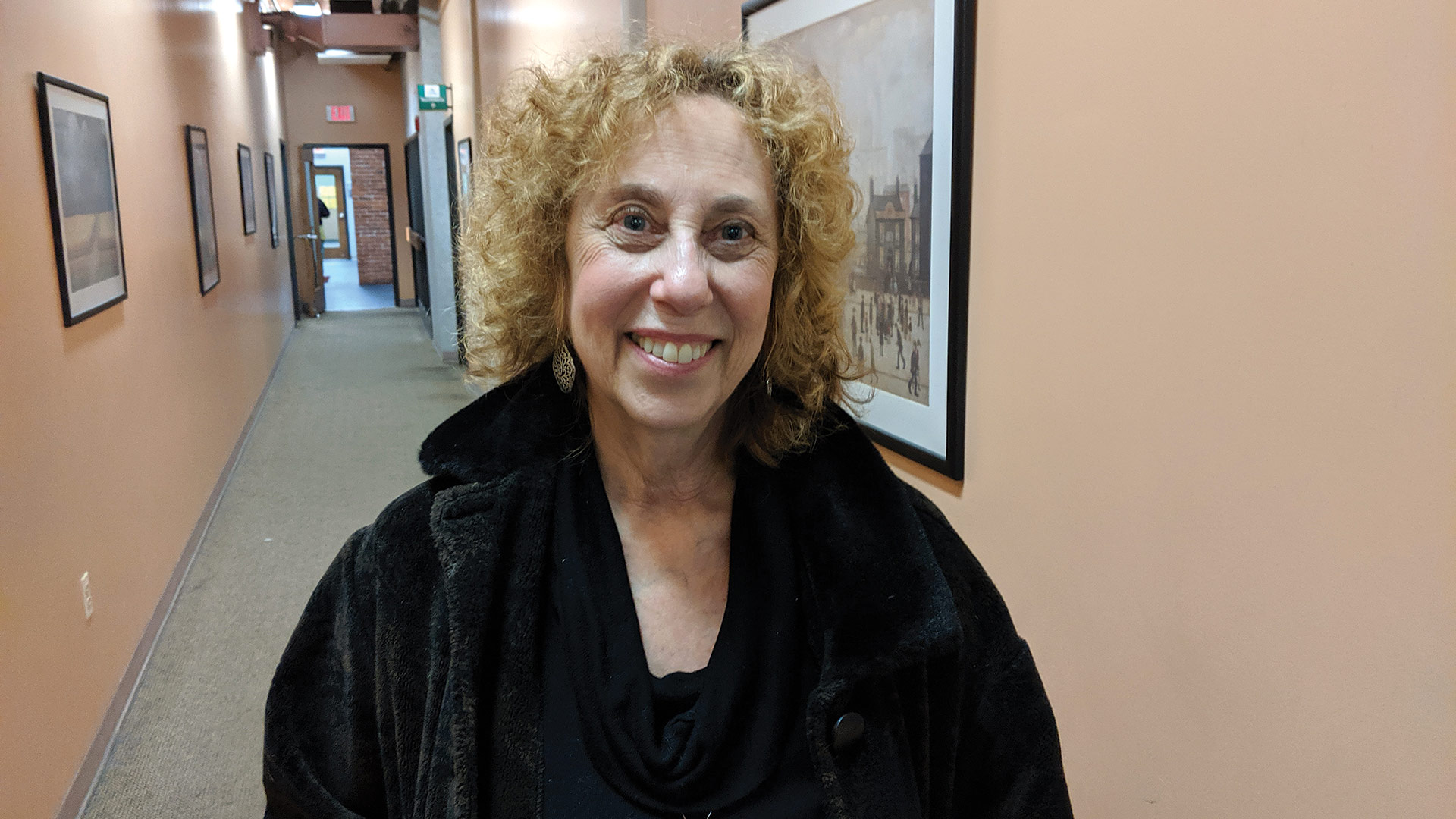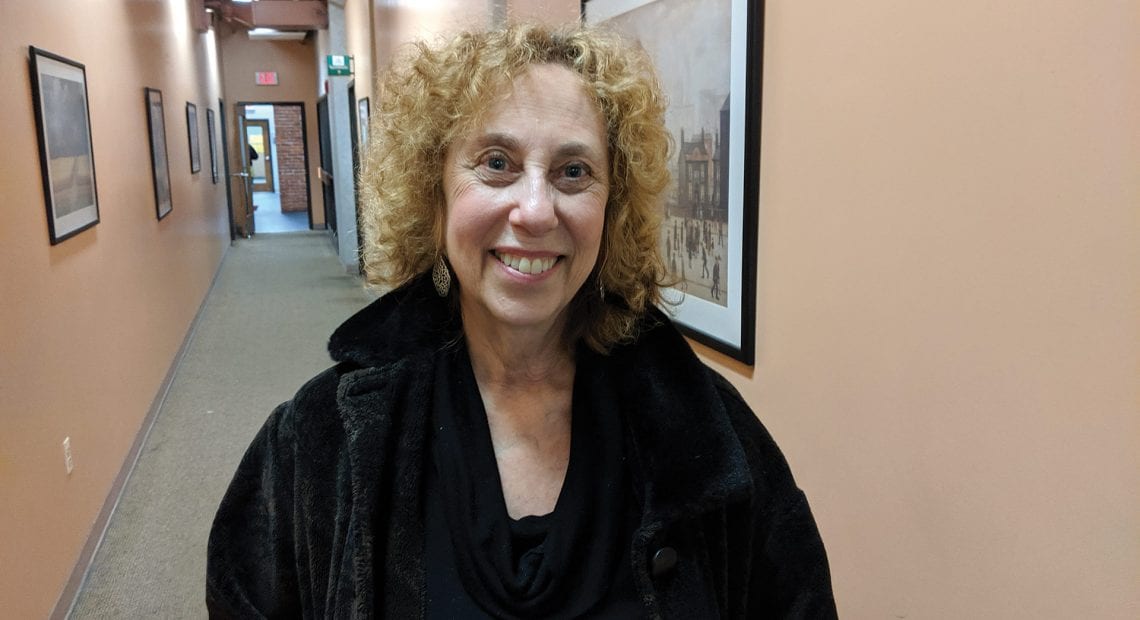Life’s Work

Fern Selesnick says ageism does exist in the work world, but sometimes people also fall prey to harmful self-stereotypes.
Fern Selesnick says older job seekers have clear advantages over younger applicants — most notably, a lifetime of experience.
“You can say, ‘I have experience in this field, and I pretty much know what’s coming around the bend and can solve problems, and nothing can throw me,’” she told attendees of a recent workshop for mature workers at the MassHire Springfield Career Center.
“The people out there who are younger than you cannot say that,” she went on. “And the only reason you can say you know the problems that come up and you know how to solve them and you are unflappable is your age. That translates to an employer saying, ‘this person is going to save me time, money, and headaches. I won’t have to work so hard.’”
It’s a message she’s shared many times with clients of Fern Selesnick Consulting in Hatfield, which specializes in career decisions and job-search skills like interviewing and résumé writing for clients ranging from students to, yes, mature workers and career changers.
But she’s also realistic about the attitudes older job seekers will face during their search, and noted that ‘old’ means different things in different fields. For example, professional athletes are considered old by their 30s, airline pilots by their 50s, and Supreme Court justices not until their 80s. But anyone, in any field, can encounter ageism.
“The interesting thing about ageism is that it’s the only form of discrimination that people can practice on others when they’re young and become a victim of when they’re old. It’s a very weird ‘ism’ in that way.”
“It can also vary by industry,” she said. “In the United States today, there is ageism, and there is age discrimination — not across the board, but it is a strong enough force to be aware of.
“The interesting thing about ageism is that it’s the only form of discrimination that people can practice on others when they’re young and become a victim of when they’re old. It’s a very weird ‘ism’ in that way,” she added. “But there are laws that protect mature workers.”
Among these is the 1967 Age Discrimination in Employment Act, which protects workers and job applicants above age 40 from discrimination based on age. States have incorporated their own laws — but none of these guarantees that older job seekers won’t run into outdated attitudes, whether blatant or subtle, Selesnick said.
“But there are also opportunities,” she went on, noting that it’s important for mature workers to understand their worth, while doing what they can to boost their skills and readiness for a new job or career change. “It’s critically important to not believe the myths about ageism. Those myths impact finances and health, as well as quality of life.”
Why Not Retire?
There are many reasons why someone chooses to remain in the job market past traditional retirement age. Finances are a major factor: 40% of Americans, including a large swath of older workers, have amassed retirement savings of less than $10,000.
But older workers bring plenty of adaptability to the table, Selesnick added, as they seek to extend their working years. Many are self-employed; in fact, according to the AARP, more than half of all new businesses are started by people over age 50. Meanwhile, people over age 75 have the highest rate of self-employment of any age group.
Being one’s own boss, of course, means not losing a job to age discrimination. But it can also mean long hours, and it’s risky — half of small businesses fail in the first five years. She recommended accessing resources like the Senior Corps of Retired Executives and the UMass Small Business Development Center for free advising on self-employment matters.
For those seeking to work well into retirement, whether for themselves or a boss, she listed a number of essential tasks, including learning how Social Security works, updating one’s résumé, researching occupational requirements, and even taking care of one’s health and managing chronic conditions. She was quick to add, however, that even people dealing with chronic illness can bring much to a job, from intelligence and wisdom to interpersonal skills and a keen sense of humor.
“Remember, a person is not their illness, even though it can be traumatic when a person is diagnosed with a chronic illness,” she added. “It’s important to remember that’s not all of who a person is, and a person can still have tremendous functioning with a chronic illness.”
Selesnick encouraged workshop attendees to avoid ‘internalized ageism,’ which are self-stereotypes often developed at a young age, and instead focus on positive qualities of aging, such as good judgment and impulse control developed over a lifetime.
“It’s important to consider what’s been gained rather than what’s been lost,” she said. “A lot of things my friends would do in their 20s, they would never do now. Which is not to say something negative about youth, because I don’t want to reverse age discriminate. But the judgment and ability to evaluate situations is something that develops with age. And that’s just the tip of the iceberg.”
And it’s something employers value, she added. But more important is the ability to do the job, and it when it comes to changing careers, people need to consider what kind of retraining that might entail — a certificate that can be earned in a few months, perhaps online, or a full degree program they may not have the time or money to pursue.
“So, if you’re going to need to be retrained, is it a retraining you can take on? Or do you have transferrable skills, so you can just switch gears?”
Sometimes all it takes is an upgrade in technology skills, and MassHire Springfield is one of many agencies offering classes in computer use and specific programs. She said one positive stereotype of Baby Boomers is their work ethic, and that often manifests as a willingness to learn new technology if it’s needed for work.
But it’s equally important, she added, to be enthusiastic and confident with that technology, because those who seem hesitant or reluctant may be screened out by recruiters without a second thought.
Selesnick also went over the basics of résumé preparation with workshop attendees, noting that applicant-tracking software will filter out applications without certain keywords before they ever make it to an HR manager’s desk. In effect, applicants are writing a résumé for two audiences — the software and an actual human being.
OK, Boomer (No, Really, It’s OK)
From there, hopefully, it’s on to the interview, which allows applicants to showcase their skills, confidence, and, yes, wisdom and good judgment collected through the years.
But it also helps to know someone, which is why Selesnick encouraged her audience to network as much as possible. “Research has shown that, if an employer receives a tip from someone they trust about a potential candidate, they’re going to trust that more than the résumé.”
Still, if the playing field is even — and it sometimes isn’t, because ageism is still a fact of life — an interview should provide an opportunity to connect on a personal level and to prove that age is no liability.
“Remember, when you’re walking into that interview, that’s your ace in the hole,” she concluded. “Your age is not your downfall — it’s your plus.”
Joseph Bednar can be reached at [email protected]








